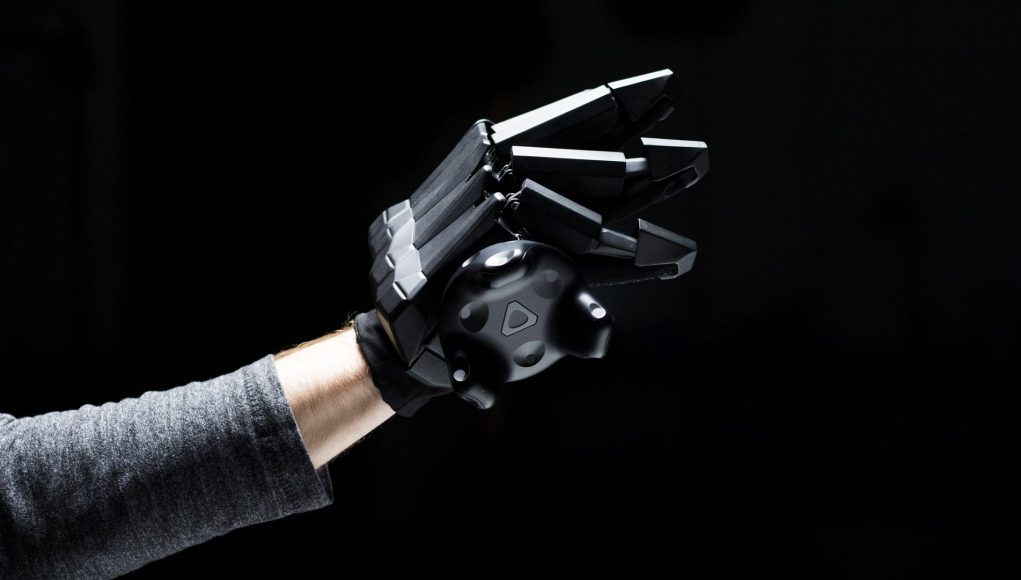VRgluv has blown past its $100,000 funding goal in 56 hours on their Kickstarter page, with 27 days still to go. The product is described as the “first affordable force feedback gloves” that feature “total hand tracking, full force feedback, and pressure sensitivity”.
Update (4/28/17, 12:39PM PT): VRGluv has now exceeded its $100,000 Kickstarter goal, presently just over $113,000. The company has announced in an update a $250,000 stretch goal which will add a replaceable battery to the glove. The company has also opened a new $370 pricing tier limited to 400 backers.
Original Article (4/27/17): Going live on March 31st, VRgluv’s website revealed their haptic gloves, compatible with both HTC Vive and Oculus Rift hardware, said to be comfortable, functional, and affordable (despite looking rather clunky). An appealing $300 price point (relatively speaking) for the Super Early Bird is the likely reason for the rapid influx of early backers and, being limited to 100 backers, is already sold out. The next tier at $350 is limited to 200 sets, followed by a ‘Kickstarter special’ price at $400, with the final retail price expected to be $580.
As shown in the Kickstarter video, different adapters allow for Oculus Touch controllers, HTC Vive controllers or Vive Trackers to clip to the sides of the gloves to perform the spatial tracking duties, with the gloves containing proprietary technology to determine finger positions and grip strength. Ideally, Vive Trackers would be used—being the least-bulky attachment to what is already a chunky pair of gloves—although VRgluv describes the units as ‘lightweight’, and the adapters are said to be carefully designed to hold each tracking solution in the most balanced position.
Applying haptic glove support to VR applications involves incorporating the VRgluv SDK, and the team recently created a short video to showcase a few examples of games already compatible.
VRgluv is one of several devices in development that provide a haptic feedback solution for hand interaction in VR. Others include the EXOS, the Dexmo exoskeleton, the temperature-changing Senso and PowerClaw, the Gloveone and Avatar VR from NeuroDigital Technologies, and more. As the haptics challenge is being approached from so many different angles, it’s difficult to predict if one product will rise to the top; this area of VR development is likely to remain experimental and niche, although VRgluv’s price is impressive considering the low volume, wireless technology, rechargeable batteries, and the likely high number of mechanical components involved.
VRgluv is aiming to deliver the first sets to customers in December 2017.







